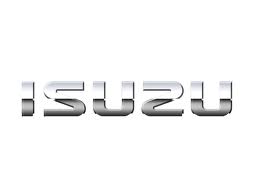Hombre S Regular Cab 4WD V6-4.3L (1999)

Transmission Cooler: Service and Repair
AT Oil Cooler Flushing
Preparation
1. After the repaired or replacement transmission is installed in the vehicles, do not reconnect the oiler cooler pipes.
2. Remove the fill cap on the J 35944 and fill the can with 0.6 L (20-21 oz.) of flushing solution. Do not overfill.
3. Install the fill cap on the J 35944 and pressurize the flusher can, using a shop air supply regulated at 550-700 kPa (80-100 psi).
4. Connect the J 35944 discharge hose to the oil cooler return pipe.
5. Clip the discharge hose onto the oil drain container.
6. Attach the J 35944 to the under carriage of the vehicle with the hook provided and connect the hose from the J 35944 to the other (feed) oil cooler
pipe.
7. With the water valve on the J 35944 in the OFF position, connect the water hose from the water supply to the J 35944.
8. Turn ON the water supply at the faucet.
Initial Flush
1. Turn the water valve on the J 35944 to the ON position and allow the water to flow through the oil cooler pipes for 10 seconds to remove any
remaining transmission fluid. If the water does not flow through the cooler and pipes, the cause of the blockage must be diagnosed and the plugged
component must be repaired or replaced. Continue with the cooler flushing and flow check procedure once the blockage is corrected.
2. Turn the water supply on the J 35944 to the OFF position and clip the discharge hose onto the five gallon pail with a lid.
3. Turn the water valve on the J 35944 to the ON position and depress the trigger to mix cooler flushing solution into the water flow. Use the clip
provided on the handle to hold the trigger down. The discharge will foam vigorously when the solution is introduced into the water stream.
4. Flush the oil cooler and pipes with water and solution for two minutes. During this flush, attach the air supply to the air valve located on the J
35944 for 3 to 5 seconds at the end of even 15 to 20 second interval to create a surge action
5. Release the trigger and turn the water valve on the J to the OFF position.
Back Flush
1. Disconnect both hoses from the oil cooler pipes and then connect them to the opposite oil cooler pipe. This will allow the oil cooler and pipes to
be back flushed.
2. Repeat steps 3 and 4 on the Initial Flush Procedure.
3. Release the trigger on the J 35944 and allow water only to rinse the oil cooler and pipes for one minute.
4. Turn OFF the water supply at the faucet.
5. Attach the air supply to the valve on the J 35944 and blow out the water from the oil cooler and pipes. Continue until no water comes out of the
discharge hose.
Flow Check
1. Disconnect both hoses from the oil cooler pipes. Connect the oil cooler feed pipe to the transmission and the return pipe to the discharge hose.
Refer to Transmission Specifications. Clip the discharge hose onto the empty oil drain container.
2. Confirm the transmission is filled with automatic transmission fluid.
3. Start the engine with the transmission in PARK range and run for 30 seconds. A minimum of 1.9 L (2 quarts) must be discharged during this 30
second of time.
-
If fluid flow is greater than 1.9 L (2 quarts) in 30 seconds, go to step 7.
-
If fluid flow is less than 1.9 L (2 quarts) in 30 seconds, perform the following diagnosis:
4. Disconnect the oil cooler feed line at the radiator.
5. Connect the discharge hose to the cooler feed line. Clip the discharge hose onto the empty oil drain container.
6. Start the engine with the transmission in PARK and fun for 30 seconds. A minimum of 1.9 L (2 quarts) must discharge during the 30 second run
time. Do the following according to flow rate:
-
Insufficient feed flow: Inspect the transmission.
-
Sufficient feed flow: Inspect the cooler return pipe and the cooler.
7. Remove the discharge hose, reconnect the cooler feed and return pipes to the transmission and refill the unit to the proper fluid level.
Refer to specifications for the correct automatic transmission capacity.
